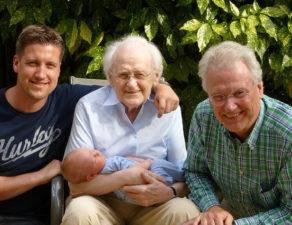In a perfect world, everyone would craft an estate and elder care plan well in advance of having to implement it˗ but the world isn’t perfect!
I have had the opportunity to work on a fair amount of cases where clients, who had no estate or elder can plan, fell ill or became disabled. In some cases, the person was in need of homecare services. Yet in other cases, nursing home care was a necessity. I am disheartened when I am confronted by these situations after clients have exhausted most, if not all, of their assets because they were under the impression that they waited too long to do their planning, and as a result, there was nothing to do other than spenddown their assets. There is always something a competent elder law attorney can do to protect someone’s assets, even at the 11th hour.
One of the simplest techniques is spousal refusal, but obviously there needs to be a spouse. This is where the assets of the ill or disabled spouse are transferred to the healthy spouse, who then refuses to apply those assets to the cost of health care. Many are surprised to learn that the Medicaid five-year look-back period does not apply to transfers between spouses. Once all of the assets are out of the ill or disabled spouse’s name, that spouse may be eligible for Medicaid.
The five-year look-back period also is inapplicable in all homecare cases. Thus, when there is no spouse, assets can be transferred to anyone. We often use outright transfers and certain trusts to move assets in homecare cases. The real challenge is when there is no spouse and an individual enters a nursing home where the five-year look-back period does apply. In that case, an experienced elder law attorney can implement a certain planning technique commonly referred to as a “promissory note/gifting strategy”. The intricacies of the strategy are outside the scope of this article, but the result is that we can save approximately 40-50 percent of the individual’s assets. Most people are ecstatic to achieve these savings since they were contemplating total spenddown. These are real success stories.
Medicaid also allows for certain exempt transfers and does not count certain assets as available for eligibility purposes. For instance, a homestead can be transferred to a caretaker child without penalty. Moreover, individual retirement accounts (“IRA’s”) are exempt, provided that the individual is receiving their required minimum distributions. On too many occasions I have seen people exhaust their IRA’s unnecessarily.
All of the above techniques may require a power of attorney and statutory gifts rider in order to complete the planning. A basic boilerplate form will be inadequate for these purposes. If the person in need has capacity, there is a rush to prepare and sign a new power of attorney and statutory gifts rider. If there is no capacity, a guardianship must be contemplated. Although a guardianship proceeding may be the only key that unlocks the door, there is an expedited form of a guardianship under Article 81.16 of the Mental Hygiene Law that allows for the appointment of a special guardian for a limited purpose. For instance, where we are seeking to transfer the primary residence to a healthy spouse, we will utilize this type of proceeding to save costs and time.
Please contact us at 914-206-1418 or by e-mail at smd@mfd-law.com. You may also visit our website at www.plantodayfortomorrow.com.









